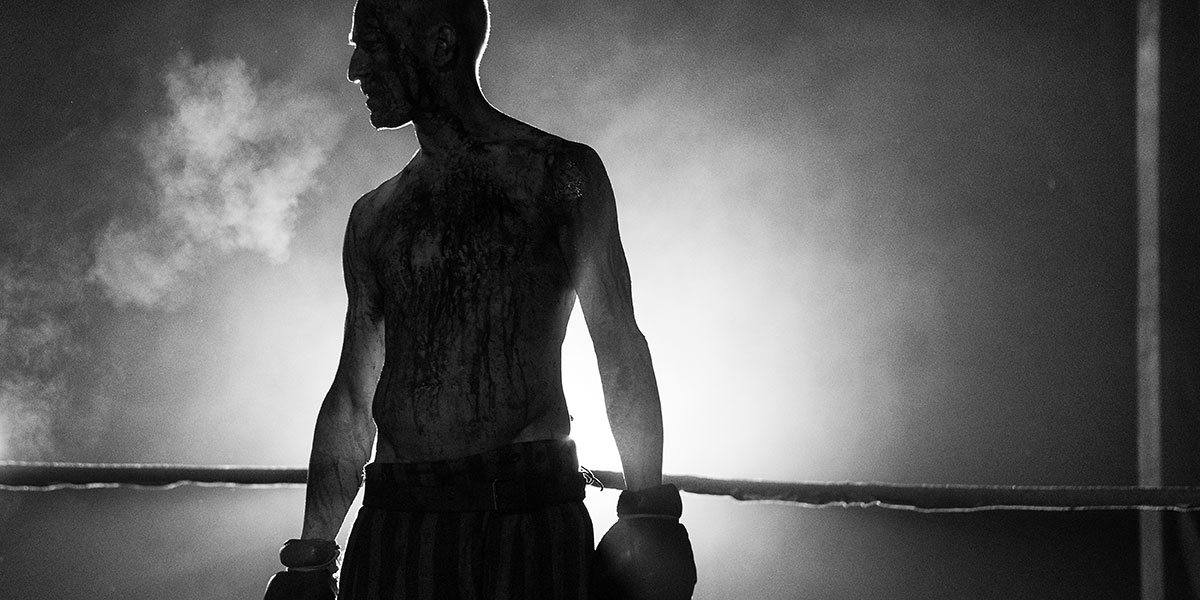
Before getting my ticket to see The Survivor last week, I had never heard of boxer Harry (or Hertzka) Haft before. Having seen his story on the big screen, and told with such extraordinary talent, his story has left me deeply moved.
If you haven’t heard of him before, Harry Haft was a Polish survivor of Auschwitz concentration camp. After being forced to fight in the camp, Haft survived and moved to America, taking his newly acquired athletic skill and becoming a professional lightweight boxer in the United States in the late 40s.
This film, based on the memoir by Harry’s real life son Alan, focuses on his father’s life both during and after the war, including his famous fight with Rocky Marciano. As it turns out, everything Haft did was part of his quest to find someone he lost in Poland so many years ago.
Harry Haft’s story is often a melancholy one; director Barry Levinson (known for Good Morning Vietnam and Rain Man) has taken great care to showcase most of Haft’s life with a strong sense of dignity, understanding that hope was the driving motivation for most of Harry’s life.
That respect is important because the Holocaust and its aftermath are rightly sensitive subjects. There have been endless great WWII movies before and several great boxing movies, so none of this is new territory. The Survivor, however, is told with such conviction and earnestness that it overcomes dismissive tropes.
What impressed me the most was how Levinson explores Harry’s lasting trauma, showing how easily survivors can be triggered by every day life and how impactful the damage was for Harry day-to day. This social exploration of Harry’s behaviour showcases the long-term impacts of surviving genocide, giving his movie a unique commentary on the horrors of war.
One great editing choice made to show the difference between the optimism of life and the disparity of war is changing some scenes from colour to black and white.
Not only is this an effective way to distinguish the stories Harry tells of his time in Auschwitz, but it’s also visually interesting for the audience to juxtapose specific moments in Harry’s life. By alternating them (without breaking the plot’s chronology) we empathize with Harry by understanding what is directly affecting him at any given moment.
Ben Foster plays the lead character with great skill and insight, portraying Haft over 25 years of his life. It takes a great amount of research to show Haft in all periods, but then great skill to differentiate the man through all parts of his story. Foster’s transformation is incredible, and one of the best performance of TIFF this year.
The film does slow down in the last half hour, maybe telling one chapter too many of Haft’s life. It also has quite a few intense scenes, with a stark, honest depiction of what life in a concentration camp was like.
But The Survivor is engaging and honestly inspiring cinema. Haft’s story shows that choosing to live hopefully is always worth pursuing, and that trauma from your past can be healed in the meaningful way of choosing to move forward. Like Harry’s brother Perez says to him, “Why did you survive if not to live?”
The Survivor
8 out of 10
14A, 2hrs 9mins. Sports War History Drama.
Directed by Barry Levinson.
Starring Ben Foster, Vicky Krieps, Billy Magnussen, Peter Sarsgaard, Saro Emirze, John Leguizamo and Danny DeVito.
Available for TIFF digital rental this Saturday, Sept. 18, with tickets and rentals available here. Scheduled for release in fall 2021.
Read more about the film on the official website.
Want to read reviews for more TIFF films? Reviews for more than 100 titles this year are and/or will be available here on Tyler Collins' personal website throughout the festival.


